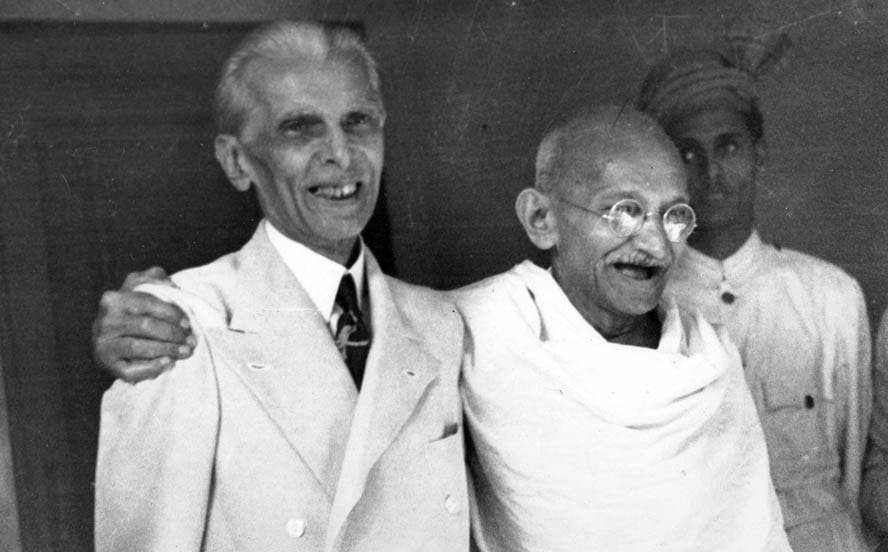
Jinnah’s principled stance against Rowlatt Act, also known as ‘Black Act’, at a time when principles of fundamental rights had not even properly developed was laudable

"When March is scarcely here
A color stands abroad
On solitary hills
That silence cannot overtake,
But human nature feels”.
This poem of Emily Dickinson was written around 1864 but once again it echoed half of century later in Bombay. It was on one bright day of March in Bombay in the year 1919 and Muhammad Ali Jinnah, the young and ambitious barrister and member of the Central Legislative Assembly, was uncomfortably traversing in his spacious home at Malabar Hill in Mumbai. He was disappointed and crestfallen over the promulgation of the Rowlatt Act, also known as ‘Black Act’.
Barrister Jinnah could feel the ‘colour’ and in his letter addressed to the Viscount Chelmsford, the Viceroy of India, he tendered his resignation from the Central Legislative Assembly and penned down, "In my opinion, a Government that passes or sanctions such laws in a times of peace forfeits its claim to be called a civilised Government. The fundamental principles of justice have been uprooted and the constitutional rights of the people have been violated --- by an over fretful and incompetent bureaucracy which is neither responsible to the people nor in touch with real public opinion."
The dawn of 1919 silenced the guns on European shores and hundreds of thousands of worn out and exhausted troops sailed towards their native lands to be united with their families and friends. Indian soldiers who had fought for King and Country also started arriving back in India in a hope for better and secure future. Fireworks, salutations and ceremonies to mark Armistice Day sent a clear signal that British Indian subjects were to receive overwhelming relief, and some even attached high hopes of having self-government in India.
All this came to a tragic end when the Sedition Committee headed by King’s Bench Justice Sir Sidney Rowlatt recommended the extension of Criminal Law Act which was an offshoot of ‘Defense of Indian Acts’ promulgated in 1915 when the World War One was gaining momentum. At that time, the British feared that the war might trigger a revolt or mutiny by the King’s enemies across the subcontinent and thus bring back the haunting memories of 1857.
Since the war had already ended, this post-war passage of a ‘Black Act’ was without any plausible reasons. This act, as Stanely Wolpert explains "suspended all political liberties and all legal due process allowing the government of India to arrest, detain, intern, or expel any Indian without trial, warrant, or stated cause."
It is pertinent to mention here that there were some elements in Bengal and Punjab which were creating unrest and leading agitations, together with violence, but Jinnah felt that "this was a wrong remedy for the disease, the revolutionary crimes." In Jinnah’s opinion, the country should not pass such laws which are incompatible with the very definition of being civilised, and the said legislation could only possibly be invoked when a country is at war. However, the British government was all eager to crush any anarchical movement; Dr Maria Misra notes, "The British politicians issued blood-curdling alarms about the incendiary effect of reckless reform and the need to insert the iron fist of repression into the silk glove of concession."
This was a time when the world was still struggling and campaigning for women’s suffrage and the concept of fundamental or equal rights for all men were not even on the horizon. Hence, Jinnah’s principled resignation, at a time when such principles of fundamental rights had not even properly developed, was very laudable. Jinnah knew that any compromise on fundamental rights would undercut the very foundations a democratic society was trying to establish and strengthen. Without these essential freedoms there would be no point of an independence struggle, no point in being independent.
However, nearly 70 years after independence, the parliament, which sits under larger than life portrait of the Quaid-e-Azam, seems oblivious to his words. It was then in the very chamber which proudly proclaims Jinnah as its first President that the Protection of Pakistan Act 2014 was passed. In terms of details, this act is very much reminiscent of the Rowlatt Act and has been passed in similar circumstances.
In 1919, too, India was unstable and there were threats -- but there was no all out war, and such are the conditions now. Pakistan is in a precarious state but if in such circumstances if we lose fundamental freedoms, we lose the morality of being called a ‘civilised nation’ in the words of our founder.
The Protection of Pakistan Act 2014 was supposed to lapse in July 2016 and thankfully it has, and to date there has been no move to resurrect it. The hope is that this remains the case and that we should devise ways of dealing with conditions in Pakistan -- and yes including how to deal with terrorists and the like, with the ambit of our constitution and the freedoms which we have fought so hard for. After all, what is it that we are protecting against the terrorist and their ideology if not our freedoms and our constitution which upholds them?